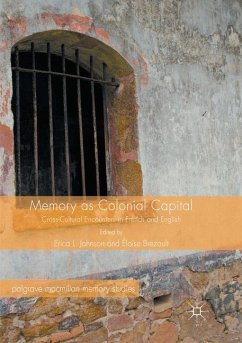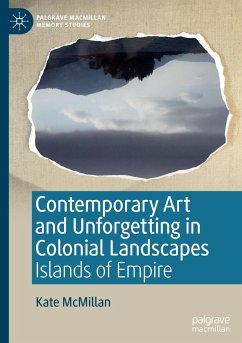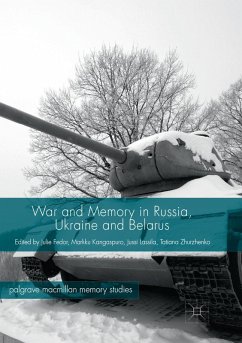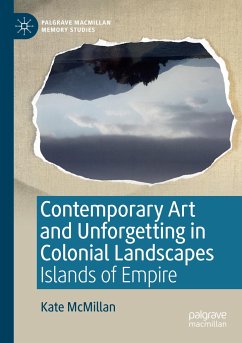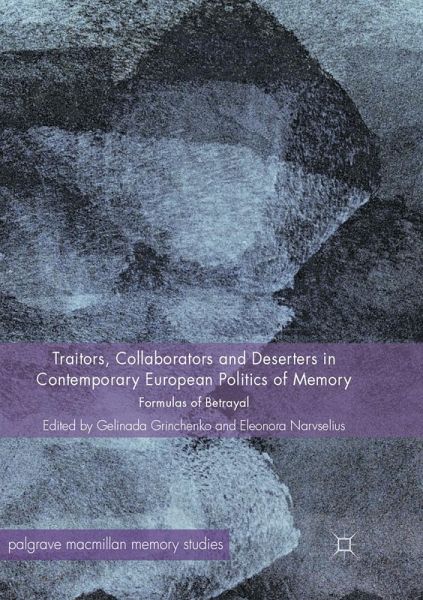
Traitors, Collaborators and Deserters in Contemporary European Politics of Memory
Formulas of Betrayal
Herausgegeben: Grinchenko, Gelinada; Narvselius, Eleonora
Versandkostenfrei!
Versandfertig in 6-10 Tagen
65,99 €
inkl. MwSt.

PAYBACK Punkte
33 °P sammeln!
This volume offers a multidisciplinary approach to shaping and imposition of "formulas for betrayal" as a result of changing memory politics in post-war Europe. The contributors, who specialize in history, sociology, anthropology, memory studies, media studies and cultural studies, discuss the exertion of political control over memory (including the selection, imposition, silencing or ideological "twisting" of facts), the usage of "formulas for betrayal" in various cultural-political contexts, and the discursive framing of the betraying subject for the purpose of legitimizing various memory re...
This volume offers a multidisciplinary approach to shaping and imposition of "formulas for betrayal" as a result of changing memory politics in post-war Europe. The contributors, who specialize in history, sociology, anthropology, memory studies, media studies and cultural studies, discuss the exertion of political control over memory (including the selection, imposition, silencing or ideological "twisting" of facts), the usage of "formulas for betrayal" in various cultural-political contexts, and the discursive framing of the betraying subject for the purpose of legitimizing various memory regimes and ideologies.





